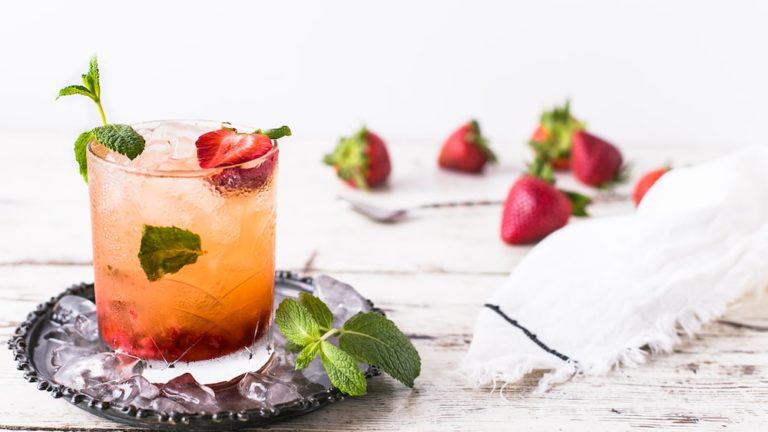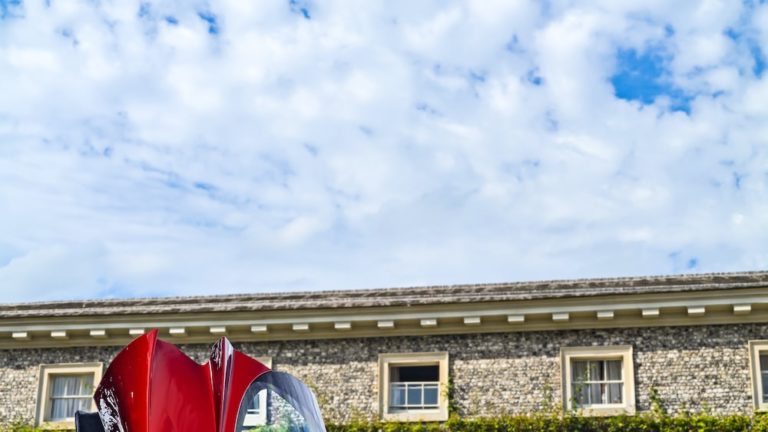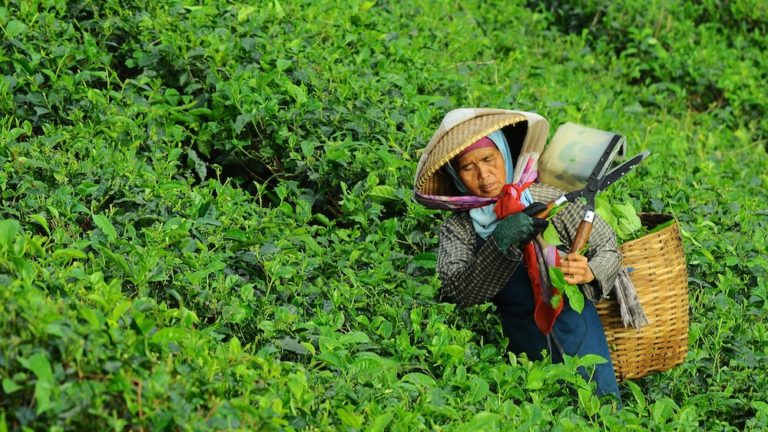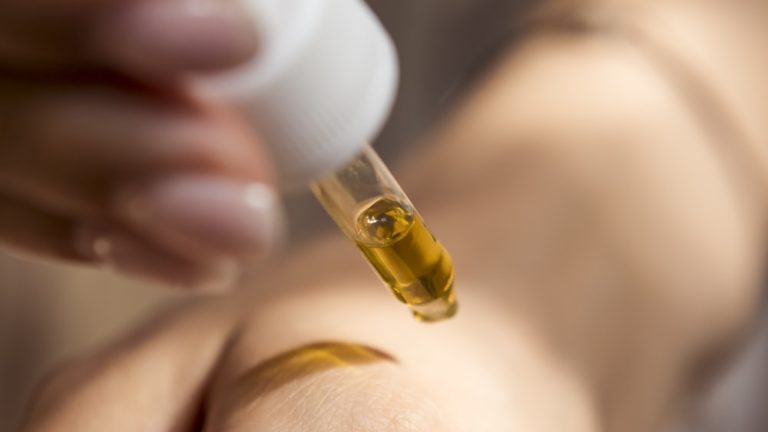Does Fermented Tea Have Caffeine? Exploring The Truth
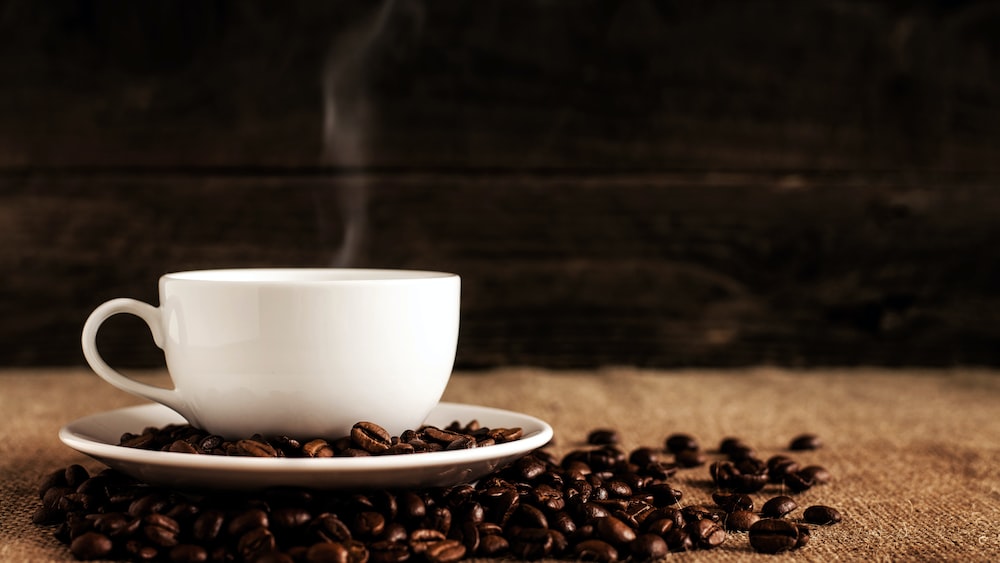
Does Fermented Tea Have Caffeine? Exploring The Truth
Kick back and sip your favorite cup of brew as we unravel the big question: ‘Does fermented tea have caffeine?’ Before diving into it, let’s take a detour and understand something. Teas are known for their subtleties in taste, with each cup taking our palate on a tantalizing roller-coaster ride of flavors. However, they also pack a mean punch of caffeine, a stimulant many of us rely on to break through the morning fog or fight off the graveyard shift yawns.
Each tea type – from the vivid green treasure often hailed as the emperor of teas, matcha, to the smoky black variants that make your taste buds waltz – carry different caffeine levels.
Something that amplifies this complexity is fermentation, a process as fascinating as it sounds.
Understanding Fermented Tea
Let’s get our Sherlock caps on and embark on this exploration of fermented tea. Prepare to be amazed as we morph the complexplayground of tea fermentation into a simple yet engaging tea party.
What is Fermented Tea?
Fermented tea, in the simplest terms, is a result of a grand tea party where tiny microbes eat, dance, and pray on tea leaves, changing them drastically – from altering their chemical composition to their flavor profile.
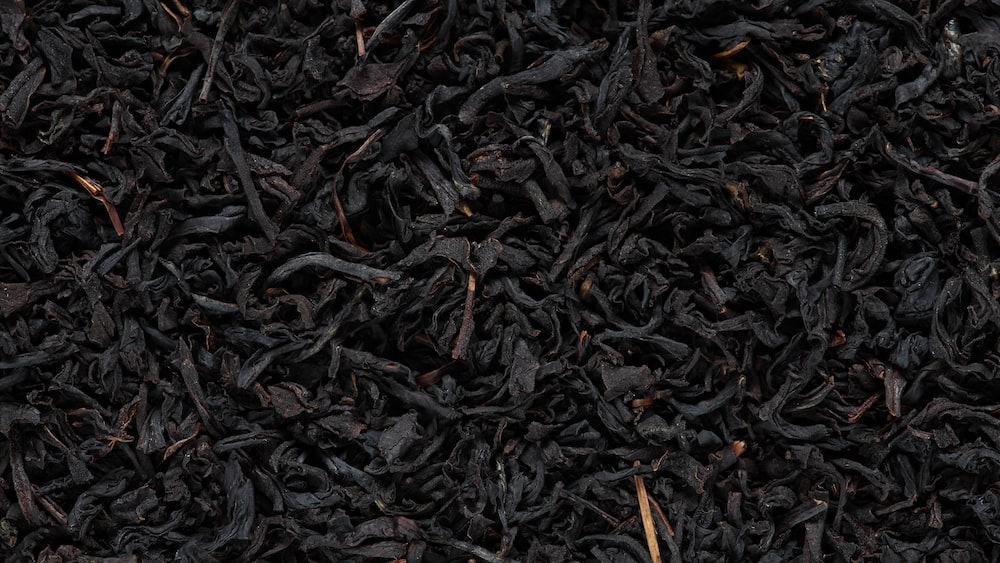
First things first. When we say ‘fermented tea,’ we’re not talking about that bottle of red left forgotten in the back of your fridge. Fermented tea is the outcome of a carefully supervised microbial process on tea leaves. These include bacteria and fungi that transform the nutrients in the tea leaves to give us nuanced flavors and aromas. Besides, it’s not just the taste; fermented teas also make a compelling case with their purported health benefits.
Second, these aren’t your everyday teas. While it might not be as widely recognized as your daily breakfast tea or the soothing chamomile, fermented tea has been a thing for centuries. It’s an integral part of many Asian cultures, with intricate rituals surrounding its preparation and consumption.
Fermented tea is a fascinating result of a microbial process that transforms the flavor and health benefits of tea leaves, and has a rich history in Asian cultures.
The Process of Fermentation in Tea
Let’s delve deeper into the world of tea fermentation. Imagine a tea leaf as a bustling chemical factory. When this factory enters the fermentation phase, it’s like kicking off a chemical carnival.
A series of reactions ensue, with enzymes playing catalysts – you have oxidations, reductions, and a whole lot of intricate processes. These processes unchain the aromatic compounds that were previously ‘caged,’ amplifying the tea aroma.
Next, the flavonoids present in tea leaves are oxidized during fermentation, leading to new polyphenolic compounds. This dramatically transforms the taste of the tea, turning the astringent bitterness into a complex and robust flavor.
Caffeine and Its Role in Beverages
Life without caffeine? Now that’s a real horror story for many folks! Let’s press the rewind button and understand this marvel that has become a global obsession.
What is Caffeine?
Caffeine – it’s an everyday term for many of us. An alarm clock for some, a deadline-companion for others, caffeine is a stimulant that has securely woven itself into the life-tapestry of millions.
Caffeine, to simplify it, is a naturally occurring compound infamous for juicing up your central nervous system. It’s our daily jolt of energy, the magic potion that dispels sleep and fatigue, making us alert in a blink.
Adored and consumed globally, caffeine is present in varying concentrations in beans, leaves, and fruits of over 60 different plants. The most common sources of caffeine for us are tea, coffee, cacao beans, cola nuts, and energy drinks.
But here’s the kicker. Caffeine, being a natural pesticide, curbs various pests by paralyzing and killing them. Teensy-weensy, innocent leaves with lethal powers, now isn’t that ironical?
How Caffeine is Naturally Present in Tea
Tea – an elixir for many, a daily ritual for others – also boasts of a certain level of caffeine. However, the caffeine tale in tea is a picturesque one, layered with multiple factors.
Firstly, caffeine in tea leaves is not uniformly distributed. The young, tender buds and leaves have a higher caffeine content than the mature leaves.
Secondly, the type of tea leaves does matter! For instance, tea types like matcha are known for their slightly higher caffeine levels than their other green siblings.
Thirdly, the overall growing conditions, including climate, soil, and even the altitude, influence the caffeine content in tea. So whether your tea could replace your morning coffee or not depends on a multitude of factors!
The Relationship Between Fermentation and Caffeine Content
Untangling these threads of caffeine and fermentation reveals quite an enthralling picture! The journey of understanding how fermentation influences the caffeine content of tea is filled with surprising twists.
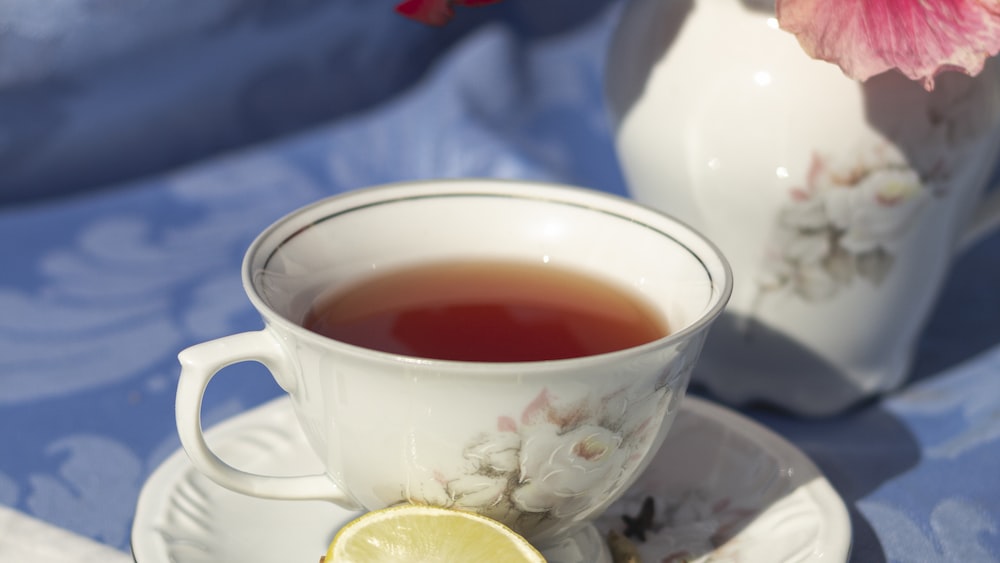
How Fermentation Affects Caffeine Levels in Tea
Contrary to your intuition, fermentation doesn’t significantly alter the caffeine content of tea! Shocked? Let’s break it down.
During fermentation, numerous chemical and biological changes occur. Puzzlingly, despite the hustle and bustle, the caffeine content remains relatively stable. This stability of caffeine content through the ferocious storm of fermentation is indeed like an anchor in the middle of an ocean!
However, the effects of fermentation are seen in the perception of caffeine. For example, longer fermentation periods may result in a smoother tea with a milder caffeine ‘kick’ – not because there’s less caffeine, but due to other compounds that develop during fermentation that balance caffeine’s stimulating effects. Quite the balancing act, isn’t it?
Fermentation doesn’t change the caffeine content of tea, but it does affect the perception of caffeine due to other compounds that develop during fermentation.
Comparing Caffeine Levels in Different Types of Fermented Tea
Fermented teas! Who knew that something as seemingly benign as this could be as intricate as watchmaking or as wildly diverse as, say, the world of mustards! Let’s get down to the nitty-gritty, shall we?
Black, green, oolong, white, and pu-erh, these are the most common types of fermented teas. The caffeine content in each type varies considerably. For instance, black tea, the most processed and fermented, typically houses more caffeine compared to its green and white counterparts. Take a sip, keep a record, and you’d soon find yourself living in a world of caffeinated contrasts.
On the other hand, fleeting through the picturesque mountains of China, one would be remiss not to sample some delicious pu-erh tea, a unique fermented tea. Renowned for its deep, earthy flavor, pu-erh tea’s caffeine content can vary significantly depending on factors such as the age of the leaves used and the duration of fermentation. But here’s a tickler – it could either jolt you awake like a robust cuppa joe or soothe you like a gentle green brew. Makes you wonder, does fermented tea have caffeine in widely varying amounts? You bet!
Case Study: Kombucha and Caffeine
Now, let’s deep dive into an exciting case study that makes fermented tea enthusiasts quiver with anticipation. Equip your scientist’s lab coat, as we delve into the fizzy, complex universe of kombucha and its relationship with caffeine. Sit tight, readers, it’s about to get bubbly!
What is Kombucha?
If fermented tea were a grand ball, kombucha would undoubtedly be the belle. Curved glass bottles filled to the brim with fizzy, tangy kombucha are a common sight in health and wellness arenas. But what is this magical potion, you ask?
Well, kombucha is, in essence, a fermented beverage made by adding specific strains of bacteria, yeast, and sugar to black or green tea, and then allowing it to ferment for a minimum of a week. Over time, the symbiotic culture of bacteria and yeast (SCOBY) consumes the sugar, transforming the tea into a slightly sour, effervescent brew teeming with purported health benefits. Who doesn’t love a little fermentation show? What’s more, while you’re savoring your kombucha, you might ponder, does fermented tea have caffeine in this fizzy form? Onto the next section!
The Caffeine Content in Kombucha
Wiggle your eyebrows, dear reader, for we are entering controversial territory – the caffeine content in kombucha. An unsettling question lingers over our bubbly brew. “Does it or does it not contain caffeine?”
Well, the answer isn’t entirely straightforward. Kombucha’s caffeine content depends largely on the type of tea used during fermentation, with black tea based kombucha usually containing higher caffeine levels than green tea varieties. However, during the fermentation process, some of this caffeine is broken down. Thus, while kombucha does have caffeine, it is usually less than the original tea it was made from. Will the stirred-up kombucha lovers among us ever find tranquility in a decaffeinated brew? Time will tell…
The caffeine content in kombucha varies depending on the type of tea used during fermentation, with black tea-based kombucha typically containing higher levels than green tea varieties, but some of the caffeine is broken down during the fermentation process.
Case Study: Pu-Erh Tea and Caffeine
Swapping our scientist’s lab coat for a traveler’s hat, let’s journey into the rustic charm of China with our next investigative exploration – Pu-erh tea and it’s flirtation with caffeine!
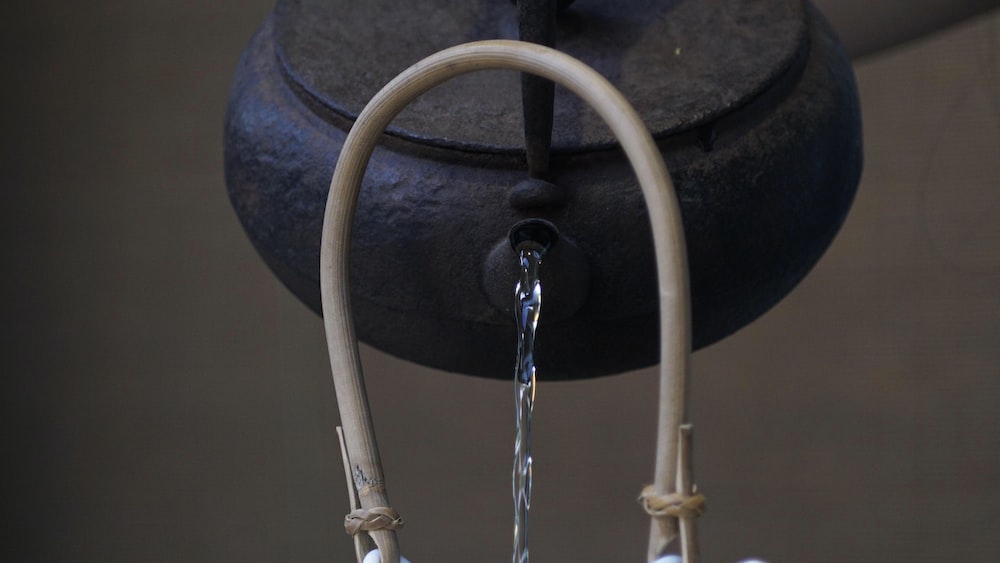
What is Pu-Erh Tea?
Ah, pu-erh, the ancient tea love-child of history and culture. This majestic tea gains its uniqueness from a distinct fermentation process and the lengthy aging period it goes through. Originating from the Yunnan province in China, pu-erh tea is traditionally made from the large-leaf variety of a plant known as Camellia sinensis.
Coming in two kinds – raw (Sheng) and cooked (Shou) – pu-erh offers something for everyone. The raw version is mildly fermented and aged for an extended period, while the cooked variety undergoes an accelerated fermentation process. This leads to the creation of a tea so layered and complex, your palate will be doing somersaults!
The Caffeine Content in Pu-Erh Tea
And now, the moment of revelation – does fermented tea have caffeine in the form of pu-erh? Strap in, for the answer might surprise you. Pu-erh tea, much like kombucha, owes its caffeine content to its parent tea leaf. Sure, it’s a derivative, but it carries a piece of the parent, a fragment of caffeine!
The caffeine content of pu-erh tea varies depending on several factors, including the type of leaf used (young vs. old) and the duration of maturation. Furthermore, studies have found that the caffeine in pu-erh can become more concentrated the longer it is steeped, making it a highly customizable cup of energy. Intriguingly, pu-erh is metabolized more slowly, resulting in a gradual caffeine release and a longer-lasting energy boost without the sudden crash.
Reducing Caffeine Content in Fermented Tea
I hear you, my dear tea connoisseurs, health enthusiasts, and caffeine-curious individuals. You love the mystique and endless flavors of fermented teas but wish for lesser caffeine. Fear not, for solutions are brewing! Read on.
Methods to Lower Caffeine Levels in Fermented Tea
Fortunately for all you tea lovers in search of a low-octane brew, there are some tricks to reduce the caffeine content in fermented tea. The first approach stands as easy as a middle school science experiment. It’s as simple as steeping your tea in hot water for about thirty seconds and then tossing the water out. Your average tea is like a shrimp cocktail, the shrimp, in this case being the caffeine, takes a quick dive into the hot tub before most of the other good stuff has a chance to get their toes wet.
The second strategy involves timing the steeping of your tea just right. Mature love waits, but caffeine is flirtatious and hooked on water’s dancefloor. It leaps into hot water at the drop of a hat while some other compounds play hard to get, take their time, and require a longer steeping session. So, by brewing your tea for a shorter amount of time, you can reduce the caffeine content.
Lastly, and this one would be like downsizing your caffeine lifestyle, you can consider drinking fermented teas that naturally have less caffeine. Kombucha, popularly known as “the booch” at city tea parties is a wonderful example of this.
The Effectiveness of These Methods
There’s no telling lies, friends. While these methods might seem like a perfect solution on the surface, they aren’t foolproof. Much like the hare of Aesop’s lore underestimated the turtle, achieving dramatic caffeine reduction simply by tweaking your brew duration is largely an overstatement furthered by caffeine rumors.
And yet the process isn’t entirely fruitless, like trying to repurpose your old socks as mittens, as these practices do result in some meaningful caffeine reduction. Yet, the surest way to dodge caffeine is to opt for teas naturally lower in caffeine, like a green tea masquerading as Kombucha.
FAQs
1. Does the type of tea leaf affect the caffeine content after fermentation?
Indeed, the type of tea leaf does indeed play a role in the caffeine content after fermentation. Just like selecting an opera singer for a jazz band, everything starts at the source – the tea leaf itself. Each variety of tea leaf comes with its bag of surprises and caffeine content is certainly one of them.
2. Can I completely remove caffeine from fermented tea?
To completely remove caffeine from fermented tea, is like looking for the philosopher’s stone. Although various methods can scrap some caffeine off your cup, none of them can completely eliminate it. The only surefire route to an entirely caffeine-free tea experience is to swivel your compass towards herbal teas that naturally lack caffeine.
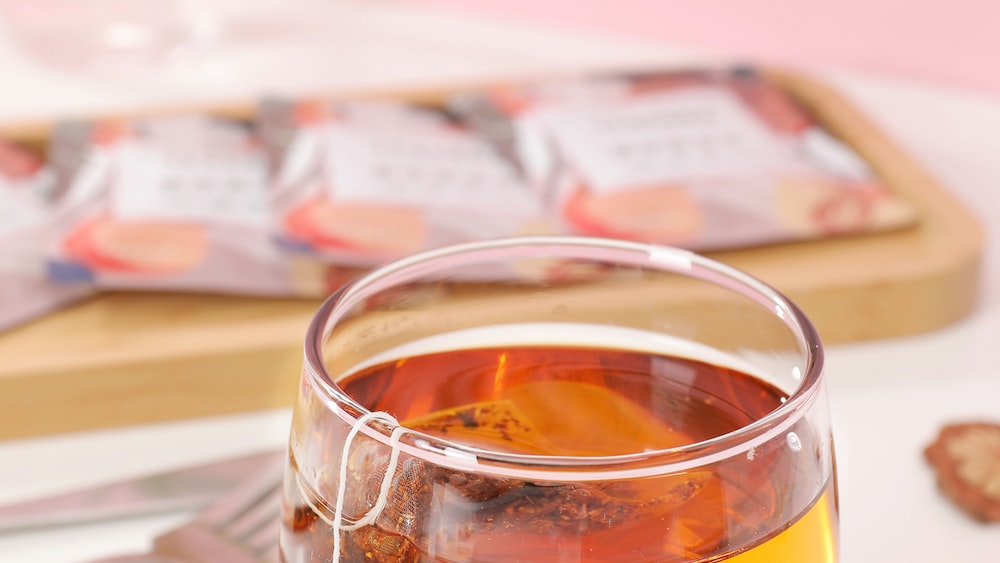
3. How does the caffeine content in fermented tea compare to other caffeinated beverages?
Comparing the caffeine content in fermented tea with other caffeinated beverages is like comparing the heat of a matchstick to that of a campfire. Fermented tea, on average, contains less caffeine than most other popular caffeinated beverages such as your everyday coffee or energy drinks.
4. Are there any health concerns related to caffeine in fermented tea?
Health concerns related to caffeine in fermented tea do exist. While caffeine can pep up your mood and kick-start your day, too much of it can cause nervousness, restlessness and even disrupt your sleep cycle. It’s best to approach it just as one would a hot stove, with the right measure of caution.
Conclusion
So there you have it, folks! The intricate dance between fermentation and caffeine in tea, unmasked for your reading pleasure. Before you raise another cup to your lips, you’ll now ponder: does fermented tea have caffeine? By now, you know well enough that while fermented tea does contain caffeine, the amount can vary and even be influenced by your tea-preparation techniques.
But let’s not let this caffeine conundrum come in the way of our love affair with tea. Whether you go for a head-spinning caffeinated whirl or a gentle decaf waltz, tea is all about savoring the moment, delighting in the flavors, and warming the heart one sip at a time. After all, isn’t life itself a bit like a teapot – bursting with opportunities to steep our experiences and pour out an invigorating, unique brew of our own?
Until next time, sip merrily and live heartily. Cheers to your next perfect cup of tea! Till then, keep infusing life one leaf at a time. Yours in tea (and occasional caffeine musings), Zoe.


